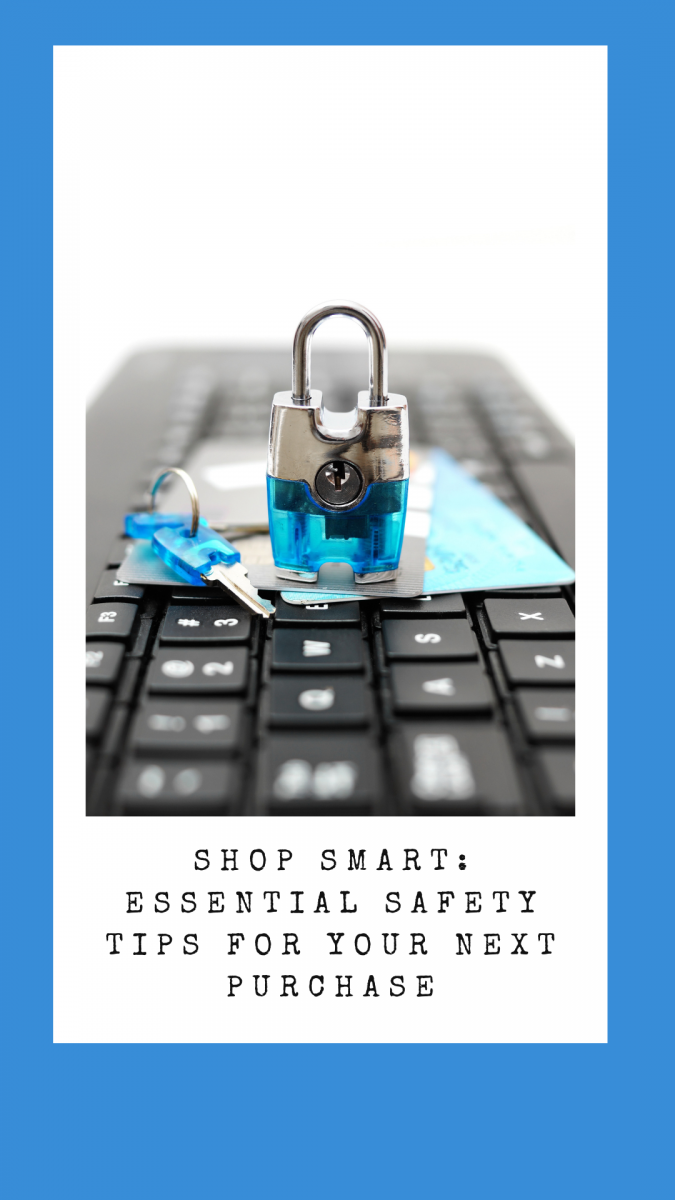
Archive
Other Pages
Shop Safe Online
Read all about the latest news from Health Pride
Shop Safe Online
The convenience of online shopping is undeniable, offering seniors the ability to purchase a wide variety of products from the comfort of their homes. However, the internet can also pose risks, such as scams and fraudulent websites. To help seniors navigate the online shopping world safely, this article provides essential tips and best practices.

- Use Trusted Websites
Stick to well-known and reputable online retailers and the official websites of brands you trust. Be cautious of unfamiliar sites offering deals that seem too good to be true, as they might be scams.
- Look for HTTPS: Ensure the website’s URL starts with "https://" which indicates it uses encryption to protect your information.
- Create Strong, Unique Passwords
Strong passwords are your first line of defense against cybercriminals. Use a combination of upper and lower case letters, numbers, and symbols.
- Avoid Common Words: Don’t use easily guessable words or phrases like "password123" or "yourname2023."
- Use a Password Manager: Consider using a password manager to generate and store complex passwords securely.
- Enable Two-Factor Authentication
Two-factor authentication (2FA) adds an extra layer of security by requiring a second form of verification in addition to your password.
- Verification Methods: This could be a code sent to your phone or email, or an authentication app like Google Authenticator.
- Extra Security: 2FA makes it much harder for hackers to access your accounts, even if they know your password.
- Be Wary of Phishing Scams
Phishing scams attempt to steal your personal information through fake emails, messages, or websites.
- Check the Sender: Verify the sender’s email address before clicking on any links or downloading attachments.
- Look for Red Flags: Be cautious of emails that create a sense of urgency, ask for personal information, or contain spelling and grammatical errors.
- Don’t Click Links: Instead of clicking on a link in an email, type the website address directly into your browser.
- Use Secure Payment Methods
Credit cards and secure payment systems like PayPal offer better protection than debit cards or direct bank transfers.
- Credit Cards: Many credit card companies offer fraud protection and will help you resolve unauthorized charges.
- PayPal: This service adds an additional layer of security by acting as an intermediary between your bank and the retailer.
- Monitor Your Bank Statements
Regularly check your bank and credit card statements for any suspicious or unfamiliar charges.
- Set Alerts: Many banks offer alert services that notify you of transactions over a certain amount or if there’s unusual activity.
- Report Issues Promptly: If you notice any unauthorized transactions, report them to your bank immediately to limit potential damage.
- Keep Your Computer Secure
Ensure your computer has up-to-date antivirus software and a firewall to protect against malware and other online threats.
- Update Regularly: Keep your operating system and software updated to patch security vulnerabilities.
- Use Antivirus Software: Invest in reliable antivirus software to detect and remove malicious software.
- Be Cautious with Public Wi-Fi
Avoid making purchases over public Wi-Fi networks, which can be less secure and more susceptible to hacking.
- Use a VPN: If you must use public Wi-Fi, consider using a virtual private network (VPN) to encrypt your internet connection.
- Wait Until You’re Home: If possible, wait to make purchases until you’re on a secure, private network.
- Check Return Policies and Read the Fine Print
Before making a purchase, understand the retailer’s return policy and any terms and conditions that apply.
- Know Your Rights: Familiarize yourself with your rights as a consumer, such as return periods and refund policies.
- Read the Details: Always read the fine print to avoid unexpected costs or conditions.
Conclusion
By following these tips, seniors can enjoy the convenience of online shopping while minimizing risks. Stay informed, use common sense, and don’t hesitate to seek help if something seems suspicious. Safe and secure online shopping allows seniors to access the products they need without compromising their personal information or financial security.




